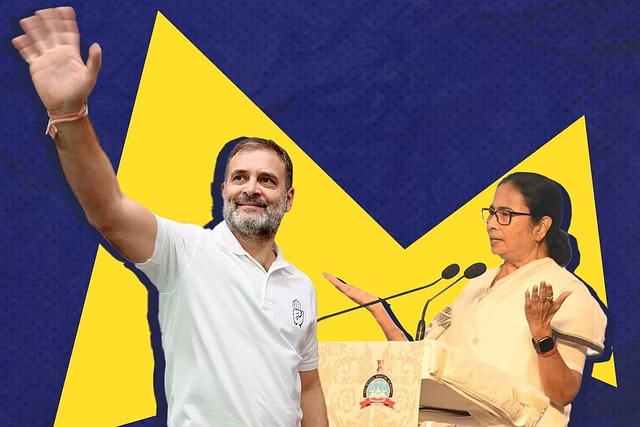Mamta Banerjee, has recently voiced strong concerns about the current dynamics within the INDI Alliance. She firmly believes that Rahul Gandhi is receiving undue credit for the alliance’s successes. Mamta feels that Gandhi’s contributions to electoral outcomes in various states were minimal, yet he’s been given disproportionate recognition. This viewpoint stems from Mamta’s extensive political experience and her keen understanding of regional politics across India.
Advocating for Balanced Representation
In response to this perceived imbalance, Mamta is actively working to encourage non-Congress members of the alliance to assert themselves more prominently. She aims to create a more equitable distribution of attention and credit among all partners. Mamta’s vision involves implementing a system where different alliance members take turns highlighting major issues, both in and out of Parliament. This approach, she believes, will showcase the diverse strengths of the alliance and prevent any single party from dominating the narrative.
Mamta’s Mumbai Meetings: A Strategic Move
To further her objectives, Mamta has strategically planned meetings with key political figures in Mumbai. She intends to discuss her concerns with Uddhav Thackeray, Sharad Pawar, and Akhilesh Yadav. These discussions will focus on developing strategies to ensure all alliance partners receive fair recognition for their efforts. Mamta’s choice of these particular leaders is significant, as they represent important regional parties with substantial influence in their respective states.
Proposed Changes in Issue Representation
Mamta suggests a novel approach to issue representation within the alliance. She proposes that regional issues should be primarily addressed by the dominant alliance partner in that area. For instance, she believes Akhilesh Yadav should lead on Uttar Pradesh-related matters, while her party should spearhead Bengal-centric issues. This approach, Mamta feels, would better reflect the alliance’s diverse composition and leverage each party’s regional expertise. Moreover, it would ensure that local concerns are addressed by those most familiar with them.
Parliamentary Coordination and Leadership: Mamta’s Vision
Another key point on Mamta’s agenda is improving floor coordination among INDI Alliance members in Parliament. She emphasizes the need for a more balanced approach, where non-Congress parties aren’t relegated to supporting roles. Mamta advocates for shared leadership in parliamentary activities, including protests and walkouts. This strategy, she believes, would present a more united front against the ruling party while allowing each alliance member to demonstrate their unique strengths.
Mamta’s Broader Vision for the Alliance
Ultimately, Mamta envisions an INDI Alliance where all partners are treated as equals. She stresses the importance of the Congress party showing magnanimity and giving due respect to all alliance members. This balanced approach, Mamta believes, is crucial for the alliance’s long-term success and effectiveness in opposing the current government. Her vision extends beyond mere electoral politics, aiming to create a truly collaborative opposition that can effectively address the diverse needs of India’s electorate.
Challenges and Potential Tensions
While Mamta pushes for these changes, resistance is expected from the Congress party, which may prefer to keep the spotlight on Rahul Gandhi. This difference in perspectives could potentially lead to tensions within the alliance, highlighting the complex dynamics at play in Indian opposition politics. Mamta’s efforts to redistribute attention and credit may be seen as a challenge to the Congress’s traditional role as the leading opposition party.
Mamta’s Focus on Regional Representation
Mamta strongly believes in the power of regional parties and their ability to connect with local issues. She aims to elevate the role of state-level leaders within the INDI Alliance, arguing that their grassroots connections are invaluable. Mamta’s approach emphasizes the importance of understanding and addressing local concerns, which she feels can sometimes be overlooked in national-level politics.
The Role of Media in Alliance Dynamics
One of Mamta’s key concerns is the way media attention is distributed among alliance members. She feels that the national media tends to focus disproportionately on Rahul Gandhi, often sidelining other important voices within the alliance. Mamta plans to address this issue by encouraging alliance partners to develop more robust media strategies. She ensures that their perspectives and contributions are adequately represented in national discourse.
ALSO READ: New relaxations in the recruitment process for former Agniveers in CAPFs.
